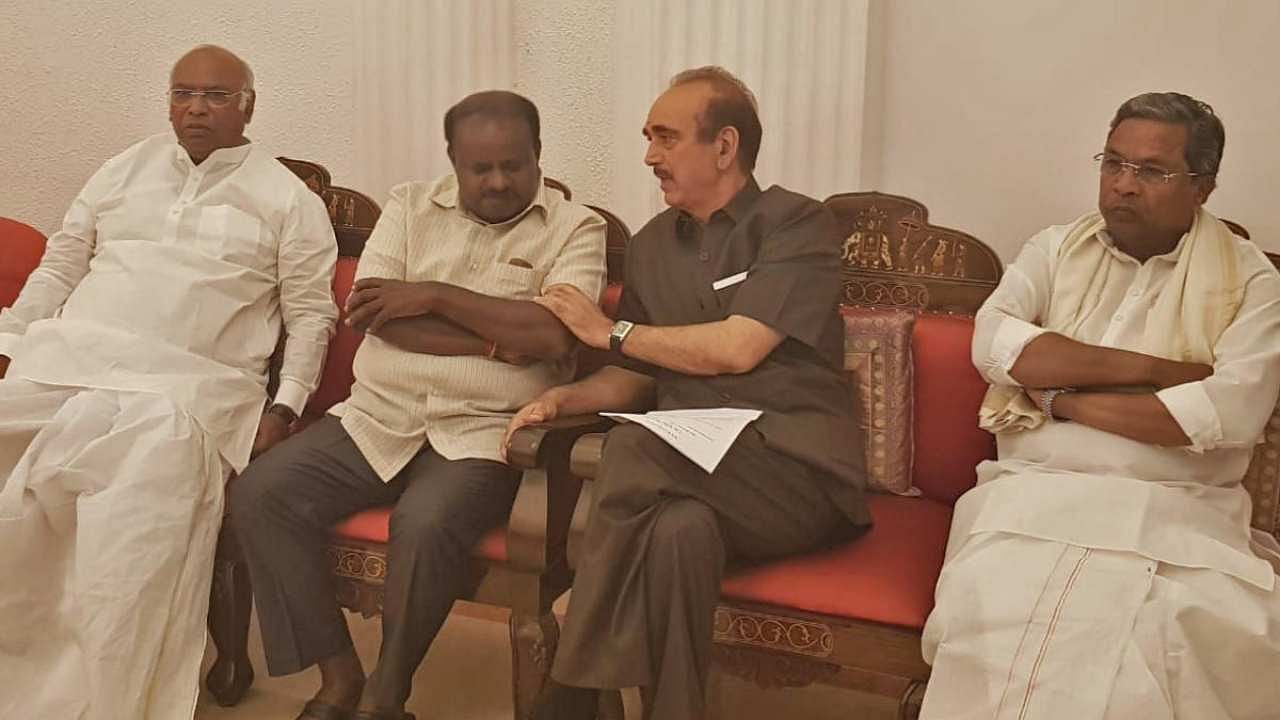
The daughter was excited that she would graduate the following year because education for women had been made free. An added attraction was the free laptop.
The mother was happy that her younger child, a son, was getting his milk at school. “We purchase half the amount of milk that we used to,” she said with a smile on her tired face. At the end of the conversation, one realised that this family of a tailor belonged to an upper caste in a small village close to Gangavati in the Koppal district.
A cobbler sitting under an overbridge in Chitradurga said: “Anna kottiro dhani avrri. Avrgey haakodu” (He gave us food, we will vote for him).
Also Read | BBMP to tie up with cab aggregators to transport voters with disability to polling booths
The Siddaramaiah-led Congress government, elected in 2013, worked hard to carry out the principle of “Nudidanate nadediddeve” (We have implemented what we promised). Schemes, worth Rs 4,410 crore, including 30 kg of rice per family in a month, increased subsidy for milk producers; one-time loan waiver for SC, STs and minorities and waiving of electricity arrears for the poor, benefited 1.2 crore people. When they went back to the people for the 2018 polls, these schemes were what was talked about.
Siddaramaiah’s handling of finances and administrative governance lived up to expectations. As finance minister, he reached the record of presenting 13 budgets. Even today, as opposition leader, the respect for his financial acumen is evident as the ruling BJP benches are full when he speaks on the budget.
He had an unfettered full term of five years and no dissidence. Where he failed was the handling of controversies. The CM’s blunt manner of speaking and dealing with issues ensured they were blown out of proportion by opponents both outside and inside his party. The art of diplomatic replies practised by his mentors, Ramakrishna Hegde and H D Deve Gowda, hiding behind the large gates of a fortress or deflecting attention has never been his style.
It required two ministers, including R V Deshpande, to argue vehemently with him to hand over the case of young Paresh Mesta’s death to the CBI. He did so 10 days after Mesta’s death. But, by then, the BJP had painted the state red terming it a communal murder. Last year, the agency, directly under the control of the union home ministry, termed it an accidental death. The experience arising earlier out of the unnatural death of an IAS officer was not enough for him to act and stub the issue.
The celebration of the birth anniversary of Tipu Sultan added another missile to the BJP’s armoury. And his decision to contest from Chamundeshwari and Badami instead of his constituency, Varuna, was a visible political misstep. “Our leader wasted time in two new constituencies. If only he had utilised those 9 days to campaign in the rest of the state, we would have got a simple majority,” one of his senior colleagues told this reporter then.
The party’s line to defeat was written when he decided to accept a memorandum to recommend to the Centre that Lingayats be given the status of a separate religion. “It will boomerang”, said BJP’s B S Yediyurappa with a victorious smile. The Lingayat community consolidated against the perceived attempt to divide them. Yediyurappa, the BJP mass leader won against Siddaramaiah, the Congress mass leader.
The final nail in the Congress coffin was Prime Minister Narendra Modi’s promise just a week before the election dates to resolve the Mahadayi river dispute in Karnataka’s favour. It swung about 20 seats in the BJP’s favour. The results were a higher percentage of votes but a lower number of seats to the Congress.
The Congress high command was super quick to call JD(S) supremo H D Deve Gowda and offer the chief ministership to his son, H D Kumaraswamy. But the marriage of bitter foes was, politically, unthinkable. The anti-Congress vote was first evidenced in 1967 along with the larger-than-life-image of Prime Minister Modi consolidated to give BJP 25 of 28 Lok Sabha seats in 2019.
The BJP again resorted to Operation Kamala, a clever scheme to subvert the Constitution, to set up its second government in the state. Whether the state’s 1985 record of not electing the same party back to power will repeat or will it again be a 2019, we will know in one week.